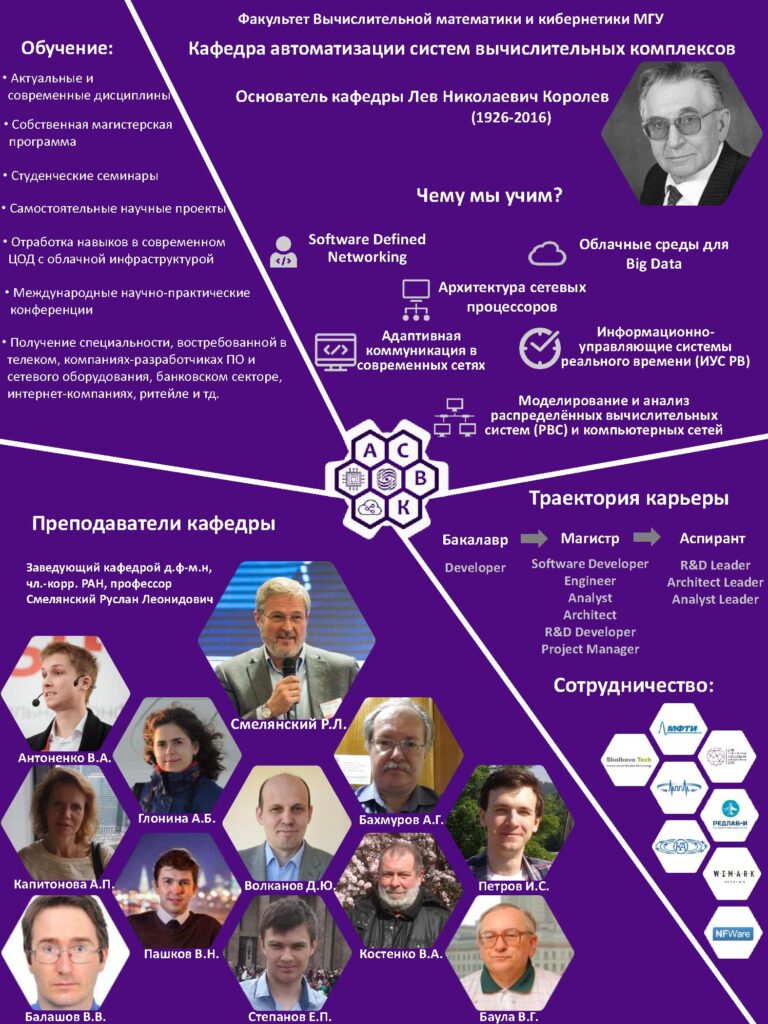How to Enroll in the Department
The research and educational program of the ASVK department focuses on distributed computing systems, including real-time information management systems, software-defined networks, and cloud technologies.
While studying at the department, students gain experience in:
- Conducting research in their chosen field.
- Practical implementation of research results in collaboration with clients.
The ASVK department has its own master’s program within the Faculty of Computational Mathematics and Cybernetics, titled “Advanced Methods of Artificial Intelligence in Data Transmission and Processing Networks.” After completing their bachelor’s degree, students can continue to work on their chosen research directions and the implementation of their results.
After completing the master’s program, students showing an inclination for research can apply to the doctoral program. We also welcome graduates from other departments and universities to join our doctoral and master’s programs. It is best to ask about the doctoral program in person from your academic supervisor or the department’s academic secretary, Dmitry Yurievich Volkanov (asvk@cs.msu.ru).
Every spring, we invite second-year students to train at the department for their third to sixth years. The annual intake of students is about 17-18.
To apply, you should:
- Read about studying at the department and our research areas on our website.
- Familiarize yourself further with the department’s work by reading articles in the “Additional Literature” section.
- If you wish, you can ask questions:
- By email: asvk@cs.msu.ru
- In our Telegram group: @asvk_admission_2024
- Optionally attend our student seminars to see how students learn (you are free to join).
- Come to our special course designed specifically for sophomores, where we explain what we do.
- Complete a practical assignment given in the special course.
- Fill out a questionnaire (made available before the interview).
- Attend an interview for the ASVK department.
Additional Literature
- Multi-Start Method with Cutting for Solving Problems of Unconditional Optimization
- Architecture of Software-Hardware Complexes of Onboard Equipment
- The Task of Scheduling in Joint Hardware and Software Design
- Approaches to Enhancing Data Center Operational Efficiency
- Schemes for “Live” Migration in Data Centers
- Parallel Simulated Annealing Algorithm for Constructing Multiprocessor Schedules
- A Self-Learning Genetic Algorithm
- Combinatorial Optimization Algorithms Combining Greedy Strategies and Limited Enumeration
Internet of Medical Things
- Development and Implementation of a Platform for Collecting and Processing Physiological Data About a Person
- Construction of a Scalable Platform for Medical Telemetry Collection
- Hexoskin Smart Vest
- BLE Under the Microscope
- Neurochat Communication System
- 9 Best Open Source Internet of Things Platforms for IoT Project Development
